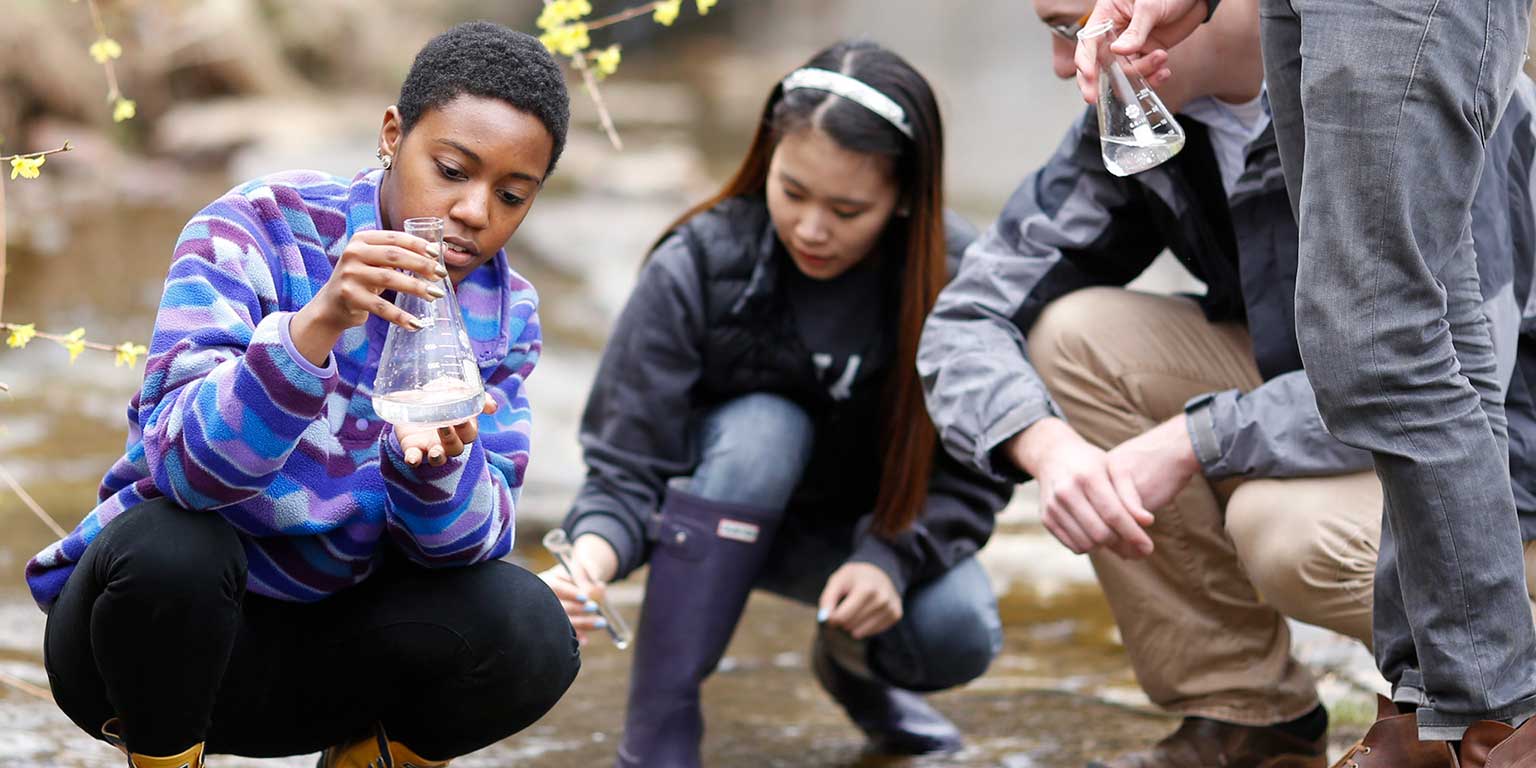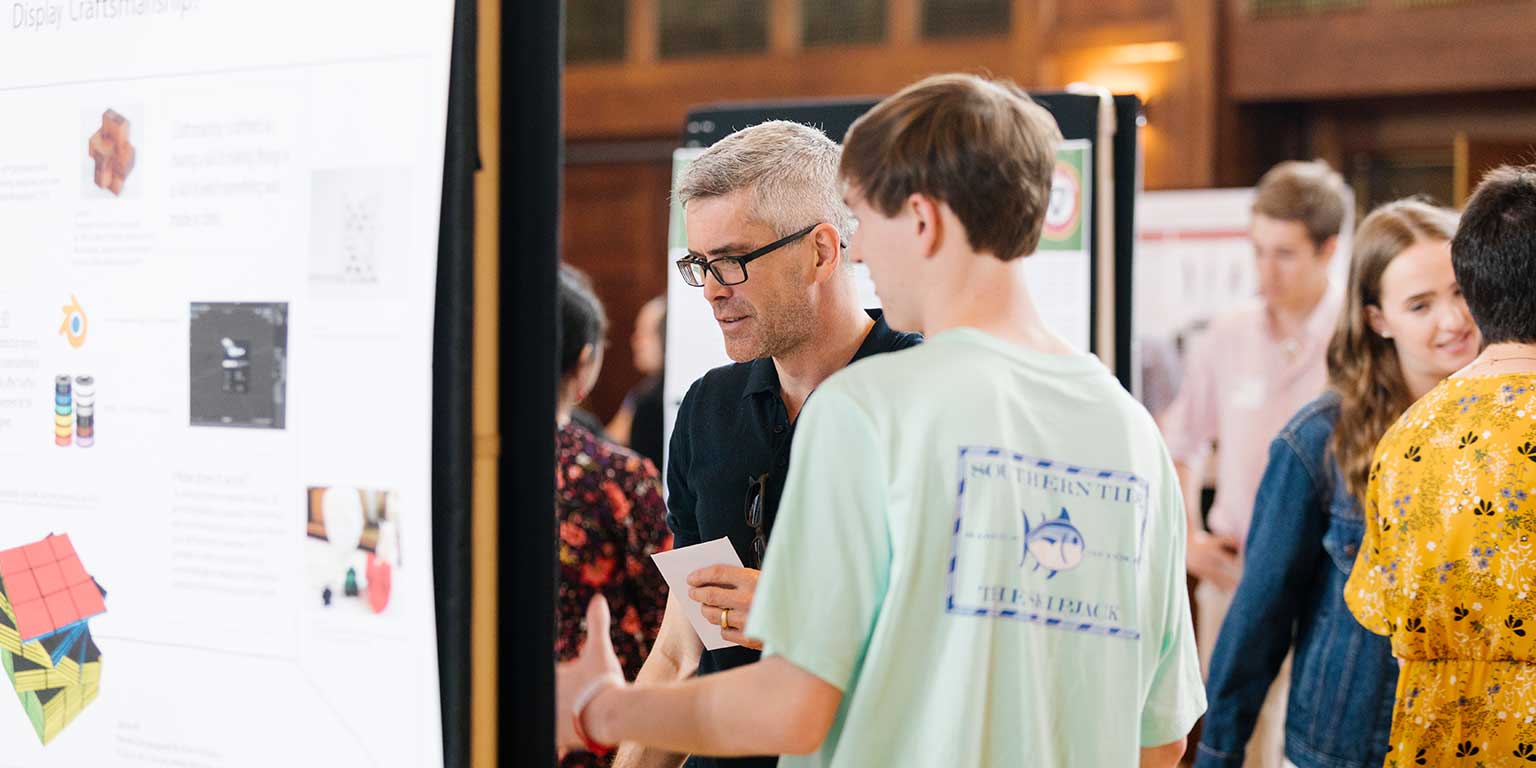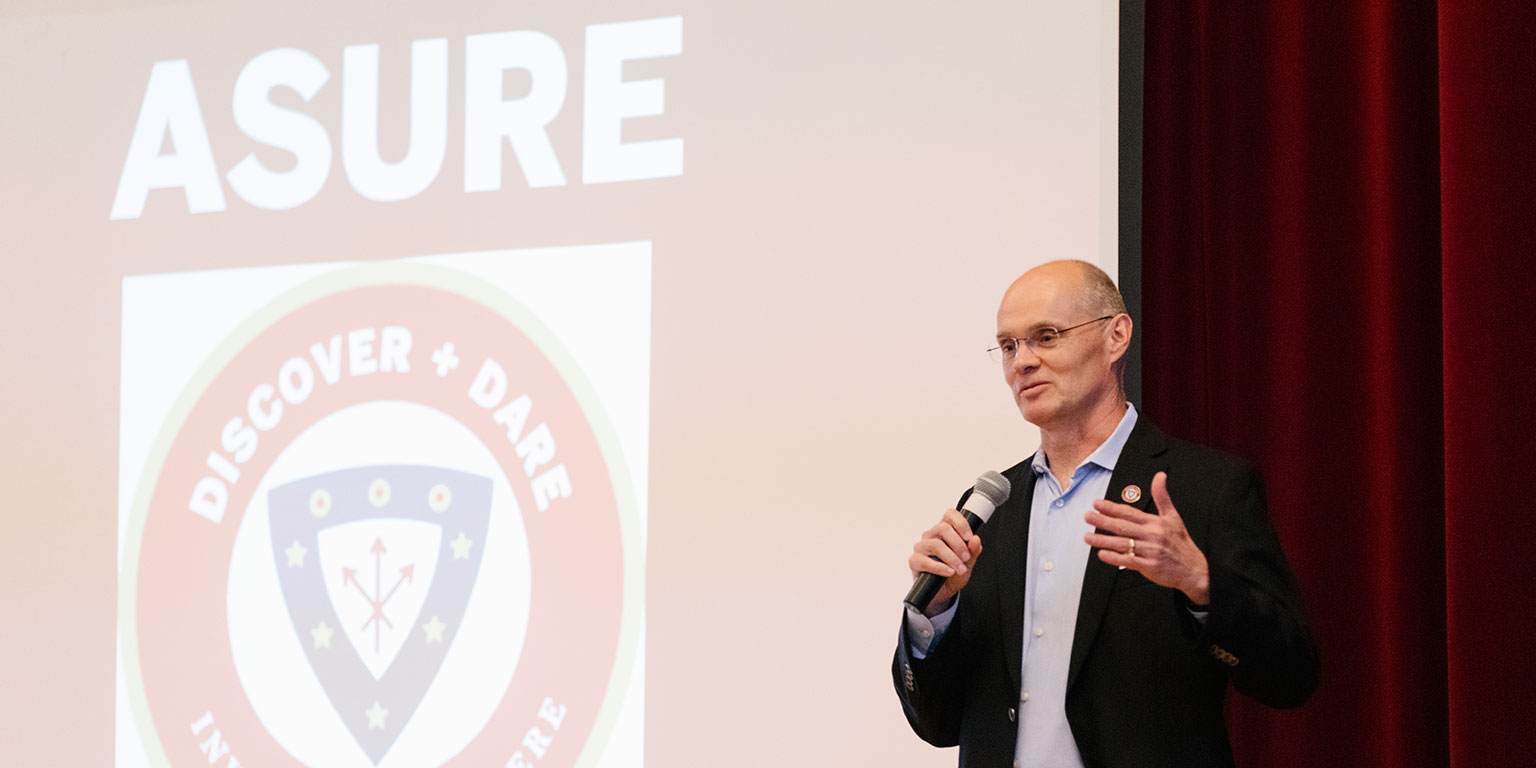By Susan M. Brackney
Freshmen enrolled in the Arts and Sciences Undergraduate Research Experience (ASURE) program are getting much more than just an early glimpse into all they could accomplish at a Research 1 institution like Indiana University. They're also enjoying the kinds of real-world lab experiences usually reserved for graduate-level students.
Set to go into its third year, ASURE is the brainchild of Paul Gutjahr, associate dean for the arts and humanities and undergraduate education and a professor of English at IU. “I think research is often this nebulous thing for undergrads,” Gutjahr explains. “They kind of know it gets done, but they don't really know that it differs significantly by field and what it might look like.”
ASURE students gain both early visibility into various modes of research and greater proximity to world-class faculty.
“We're providing a research opportunity for students who think they're interested in research but have not done any research before,” says Richard Hardy, a professor of biology and the ASURE program’s associate director. “They get the opportunity to find out what it's like very early in their college careers, rather than waiting until their junior year or something.”
While schools such as the University of Texas and Georgia State have begun to implement similar programs, these have been largely science-focused.
“We wanted to do sciences and non-sciences, because the fact of the matter is the humanities and social sciences do a lot of research, too,” Gutjahr notes. “It just looks different. You don't have a Bunsen burner. You don't have monkeys or fruit flies.”
To that end, students can apply to the ASURE Sciences, ASURE Psychological and Brain Sciences, or ASURE Interdisciplinary academic tracks. During the first semester, students learn how to interpret and conduct research. Second semester “lab” courses are often more self-directed and experiment-oriented.





